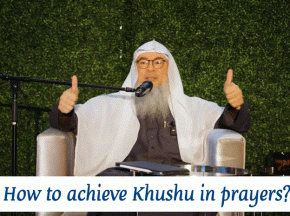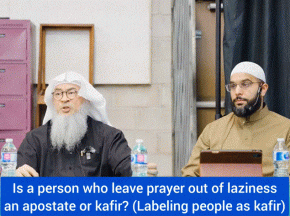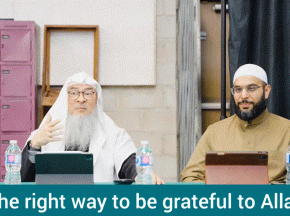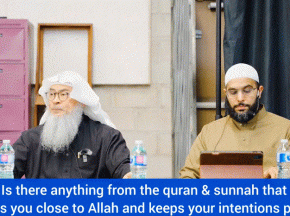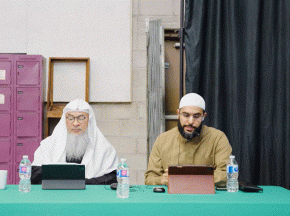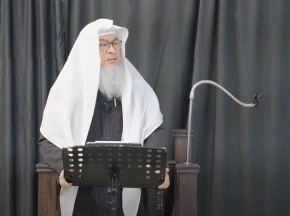content of level
Is secret nikah permissible if parents are against the marriage #assimalhakeem
Is secret nikah permissible if parents are against the marriage #assimalhakeem #assim assim alhakeem
How to achieve Khushu in prayer? #assimalhakeem
How to achieve Khushu in prayer? #assimalhakeem #assim assim al hakeem
Changing the creation of Allah (Eyebrows, Tattoos, Extensions) #assimalhakeem
Changing the creation of Allah (Eyebrows, Tattoos, Extensions) #assimalhakeem #assim assim al hakeem
Expressing your love ❤ to your muslim brother is part of the sunnah
Expressing your love ❤ to your muslim brother is part of the sunnah #assimalhakeem assim al hakeem
A person who leaves the prayer out of laziness is a kafir or an apostate? (Takfir)
A person who leaves the prayer out of laziness is a kafir or an apostate? (Takfir) assim al hakeem
This is your antivirus #assimalhakeem
This is your antivirus #assimalhakeem #assim assim al hakeem
The right way to be grateful to Allah #assimalhakeem
The right way to be grateful to Allah #assimalhakeem #assim assim al hakeem
Who was Muadh ibn Jabal? #assimalhakeem
Who was Muadh ibn Jabal? #assimalhakeem #assim assim al hakeem
Being proud of our Islamic identity #assimalhakeem
Being proud of our Islamic identity #assimalhakeem #assim assim al hakeem
What is Hope in Islam (Ar Rajaa) #assimalhakeem
What is Hope in Islam (Ar Rajaa) #assimalhakeem #assim assim al hakeem
Credit cards are haram but in Canada, US we're forced to use them, what to do
Credit cards are haram but in Canada, US we're forced to use them, what to do #assim assim al hakeem
What draws you close to Allah? #assimalhakeem
What draws you close to Allah? #assimalhakeem #assim assim al hakeem
Should we raise our index finger in between the two sujood/ prostrations as well?
Should we raise our index finger in between the two sujood/ prostrations as well? assim al hakeem
Halaqa in Canada 🇨🇦 #assimalhakeem
Halaqa in Canada 🇨🇦 #assimalhakeem #assim assim al hakeem
Friday Khutbah in Canada 🇨🇦 (Life of a muslim in the West (Non Muslim country)
Friday Khutbah in Canada 🇨🇦 (Life of a muslim in the West (Non Muslim country) assim al hakeem
Will people with missing body parts return to the original form on day of judgement?
Will people with missing body parts return to the original form on day of judgement? assim al hakeem
These people enter Jannah first & these will have to wait #assimalhakeem
These people enter Jannah first & these will have to wait #assimalhakeem #assim assim al hakeem
Does mixing zamzam water with normal water make it all zamzam? #assimalhakeem
Does mixing zamzam water with normal water make it all zamzam? #assimalhakeem #assim assim al hakeem
Whoever dies on Friday will be safe from the punishment of the grave?
Whoever dies on Friday will be safe from the punishment of the grave? #assimalhakeem assim al hakeem
Ruling on revealing female characters in Video Games Anime Cartoons
Ruling on revealing female characters in Video Games Anime Cartoons.. #assimalhakeem assim al hakeem


